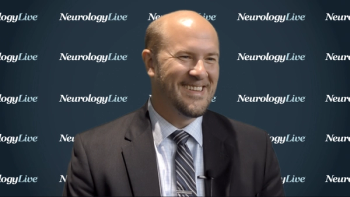
The medical director of the Deep Brain Stimulation Program at Cleveland Clinic shared his perspective on deep brain stimulation and its impact on the treatment landscape.


Maximizing the Potential of Deep Brain Stimulation and Focused Ultrasound

Valbenazine Reduces Involuntary Movements in Tardive Dyskinesia Over the Long-Term

The medical director of the Deep Brain Stimulation Program at Cleveland Clinic shared his perspective on deep brain stimulation and its impact on the treatment landscape.

The robotic platform used in various neurosurgeries was identified for a class 1 recall due to a software error which can lead to robotic arm malfunction.
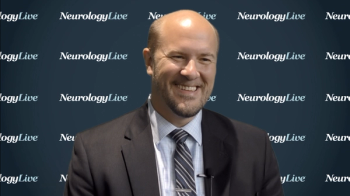
The medical director of the Deep Brain Stimulation Program at Cleveland Clinic shared his insight into the current state of affairs in the Parkinson disease treatment paradigm.
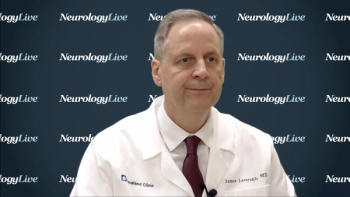
The director of the Cleveland Lou Ruvo Center for Brain Health at Cleveland Clinic discussed the available options for Parkinson dementia and how they compare in Alzheimer, as well as the ongoing development in Alzheimer.
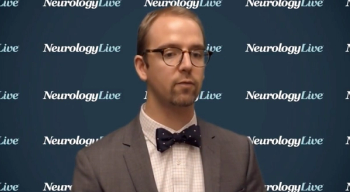
The neurologist at Thomas Jefferson University Hospitals discussed the pros and cons of supplemental drugs used to reduce off time in patients with Parkinson disease.

The chief medical executive at The University of Texas MD Anderson Cancer Center is expected to be named the next commissioner of the FDA by President Donald Trump.

In an interview with NeurologyLive, Andrew S. Feigin, MD, details ongoing trials that aim to treat Huntington disease, including the notable SIGNAL trial.

Although the indication of pimavanserin has provided some relief, more work remains to improve how physicians diagnose, treat, and manage psychosis symptoms.

Neurology News Network for the week ending October 26, 2019.

The drug recently gained FDA approval for treatment of lower limb spasticity in pediatric patients without cerebral palsy, in which it is associated with improved functional outcomes.

The director of the Cleveland Lou Ruvo Center for Brain Health at Cleveland Clinic laid out these challenges that he and his colleagues face in differentiating patients with Lewy body dementia from other dementia pathologies.

The agency sent a joint letter with the FTC to Rooted Apothecary LLC for claiming its CBD products can medically treat a number of conditions including Alzheimer disease and Parkinson disease. Since 2017, the FDA has issued more than 10 such letters.

SynapCell and Motac Neuroscience recently announced a novel biomarker, BetaPark [evo], for Parkinson disease progression. The chief innovation officer at SynapCell provided insight into the clinical implications of this discovery.

The director of the Parkinson’s Disease and Movement Disorders Center of Boca Raton and principal investigator of the PROSPECT study, offered insight into the clinical impact and advantages of the Cala Trio neuromodulation device.

The wrist-worn wearable neuromodulation device for essential tremor was shown to be safe and efficacious in the PROSPECT trial, with more than 50% of patients experiencing a ≥50% improvement in tremor "power" or severity.

The VMAT2 inhibitor marketed as Austedo by Teva Pharmaceuticals was associated with clinically meaningful long-term treatment benefit in patients with tardive dyskinesia, showing higher response rates than those observed in short-term trials.
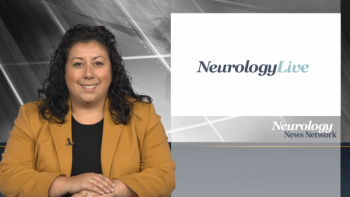
Neurology News Network for the week ending October 19, 2019.

A first-of-its-kind study has explored the social and professional impacts that tardive dyskinesia-related movements can have on individuals with the condition, as well outward perceptions.

Results of a phase 2 trial in patients with Friedreich’s ataxia leaves hope for the future, with regulatory submission on the agenda.

The oral selective adenosine A 2A receptor antagonist was approved in August as adjunctive treatment to levodopa/carbidopa for patients with Parkinson disease who experience off episodes.

Cerevel Therapeutics’ highly selective dopamine D1/D5 agonist showed significant reductions in UPDRS-III scores for those with early-stage Parkinson disease and is planned to enter phase 3 in 2020.

The professor of chemistry and chemical biology at Harvard University and Blavatnik National Laureate discussed the work she and colleagues have done on microbiome metabolism and what upcoming plans to pursue this further could achieve.

The drug, the only approved botulinum toxin type B on the market, was recently approved for the treatment of chronic sialorrhea in adults.

The study included patients with Parkinson disease receiving treatment with levodopa carbidopa who experienced morning akinesia.

Neurology News Network for the week ending September 28, 2019.